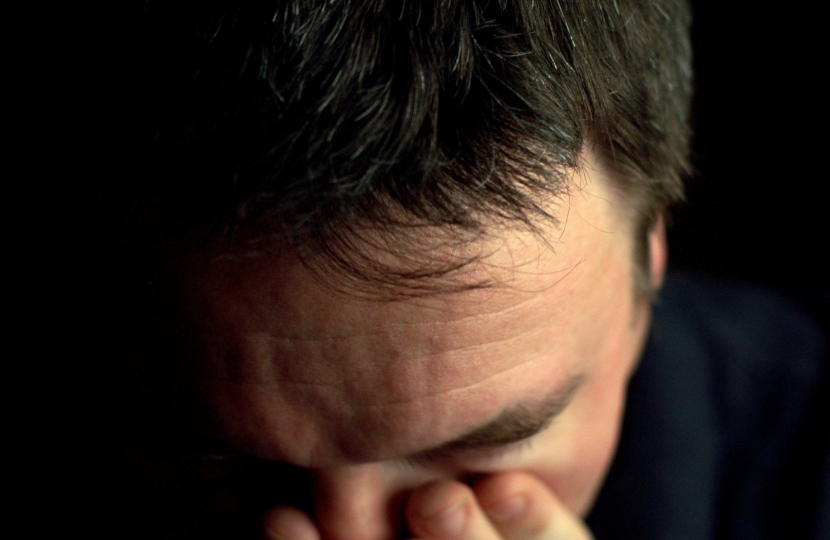
Although in a different political party, the former Assembly Member Carl Sargeant was a colleague and a friend and news earlier this month of his death was devastating. It is understood that he took his own life and my thoughts at this extremely difficult time are with members of his family, which he adored and spoke of often.
Suicide fortunately is quite rare, however we can not ignore the fact that each year in Wales between 300 and 350 people take their own lives – around three times the number killed in road accidents.
Suicide rates among men in particular are very concerning. They have soared over the years here in Wales and they are now the highest they have been for more than three decades. We have rates which are higher than the UK average and the latest figures show that suicide is the leading cause of death for 20-34 year olds.
Most people who attempt suicide are ambivalent about killing themselves - frequently what they seek is to put a stop to unbearable feelings or a situation that seems intolerable. Those who experience suicidal thoughts may well be feeling frightened, trapped, hopeless, helpless, confused and distressed - and desperate to escape from his or her suffering rather than actually wanting to die, but wrongly conclude that suicide is the only way out.
While causes of suicide are complex, we do know that there are factors which increase the risk for specific groups or individuals. These factors include deprivation, drug and alcohol misuse, previous self-harm and post-traumatic stress disorder. Significant life events such as losing your job, home, or a loved one can also take their toll on people’s mental health and increase the risk of suicide.
Around 17 people in every 100 will have suicidal thoughts at some point in their life, but fortunately only a very small number of those who harm themselves or who think about suicide will actually die in this way.
To help those who feel this way and to reduce suicide rates we need an approach which promotes good mental health and wellbeing, offers timely support, raises public awareness and which reduces inequality.
Many people are reluctant to talk about suicide openly when someone expresses their own feelings to them or they have those feelings themselves. They worry that talking to someone about suicide or thoughts of suicide may cause it to happen, although there is no evidence that this is the case.
In fact, encouraging people to be open about their feelings, to ask for help, to be able to cope with difficult life experiences and to be willing and able to help others in difficulties can help in preventing suicide and self-harm.
The Samaritans exists to reduce the number of people who die by suicide. More than five million people in the UK and the Republic of Ireland get in touch with the organisation every year. Samaritans are confidential and listen to you and help you talk through your concerns, worries and troubles. You don’t have to be suicidal to get in touch with them.
Reducing suicide rates is a goal for us all. Working together across Government, at community level, in voluntary organisations and throughout society, we all have a role to play in helping to give people the best chance to turn their lives around when they are struggling.
We have already lost too many people in Wales to suicide and we need to do everything within our power to ensure that we prevent further tragedies and heartbreak to families. Together we can make a significant difference to the rate of suicide.
To contact the Samaritans call their Freephone number 116 123 , which is open 24 hours a day, 7 days a week. The Welsh Language Line 0808 164 0123 is also free to call and is open from 7pm - 11pm 7 days a week. Alternatively visit www.samaritans.org to find details of your nearest branch.


